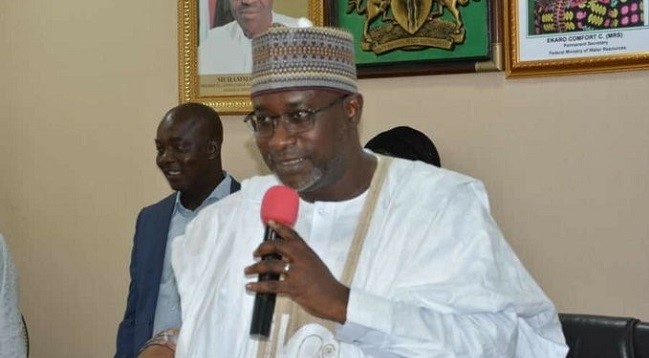The Amalgamated Union of Public Corporations Civil Service Technical and Recreational Services Employees (AUPCTRE) has advised government at all levels to remove impediments to accessing portable water if the campaign to check the spread of the COVID-19 pandemic must be won.

In a statement issued in Abuja, AUPCTRE said that the World Health Organisation’s (WHO) recommendation on hand-washing with soap, which the federal and state governments continually echo in their public communication, reinforces the centrality of water in combating the virus, and equally exposed the lip-service the Nigerian government has paid to this crucial need of the citizenry.
The group alerted that some of the noticeable threats to universal access to water in Nigeria include poor budgetary allocation to the sector, and the growing recourse to various forms of privatisations that can best be described as “abdication of responsibility”.
AUPCTRE National President, Comrade Benjamin Anthony, said: “While the public awareness communication, including the hand washing messages from government at all levels are laudable, the absence of concrete policies and actions to address the root cause of unavailability of water in our communities makes mockery of the campaign to check the COVID-19 pandemic.”
Comrade Anthony expressed concern that, more than two years after the federal government declared a state of emergency in the water sector, nothing meaningful has happened at national and state levels except recommendations on how to abdicate responsibility to for-profit-only entities, including corporations that have failed in their countries of origin.
The AUPCTRE national president pointed out that the Nigerian water sector is plagued by poor budgetary allocation, lack of political will on the part of government and the recourse to all forms of privatisation, including the Public Private Partnership (PPP) promoted by the World Bank, which reportedly prioritises profits over basic rights.
He opined, however, that the COVID-19 pandemic has exposed the magnitude of neglect the water sector has suffered, even as he added that most of waterworks across the country are currently either shut down, running far below capacity, and managed by poorly remunerated staff.
“The systemic neglect of the waterworks across the federation is to pave way for privatisation and this game plan is on in Lagos, a state of over 21 million people that continues to romance with the idea of the failed PPP model marketed by the World Bank. Other states of the federation are also toeing this slippery path.
“Privatisation – be it PPP or any other model – will take water farther away from local communities that are in dire need of water and put it only in the tanks of the rich. This is why we fear situations like what happened in Flint and Pittsburgh in US may happen here and make communities vulnerable to the COVID-19 and other illnesses.“
He recommended that, to solve the water crisis in Nigeria, federal and state governments must build the political will to prioritise water for the people, leading to a comprehensive plan that invests public funds in water infrastructure necessary to provide universal water access, which will create jobs, improve public health, and invigorate the national economy.
“It is now time for the federal and state governments stop the sloganeering that deprive our people of a basic right and makes them vulnerable to illnesses including the COVID-19. It is now time for the real emergency in the water sector and implementation of real solutions. The price of delay will be costly,” he stressed.
